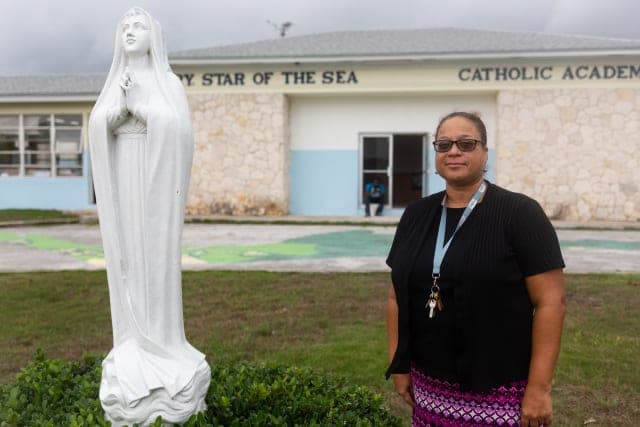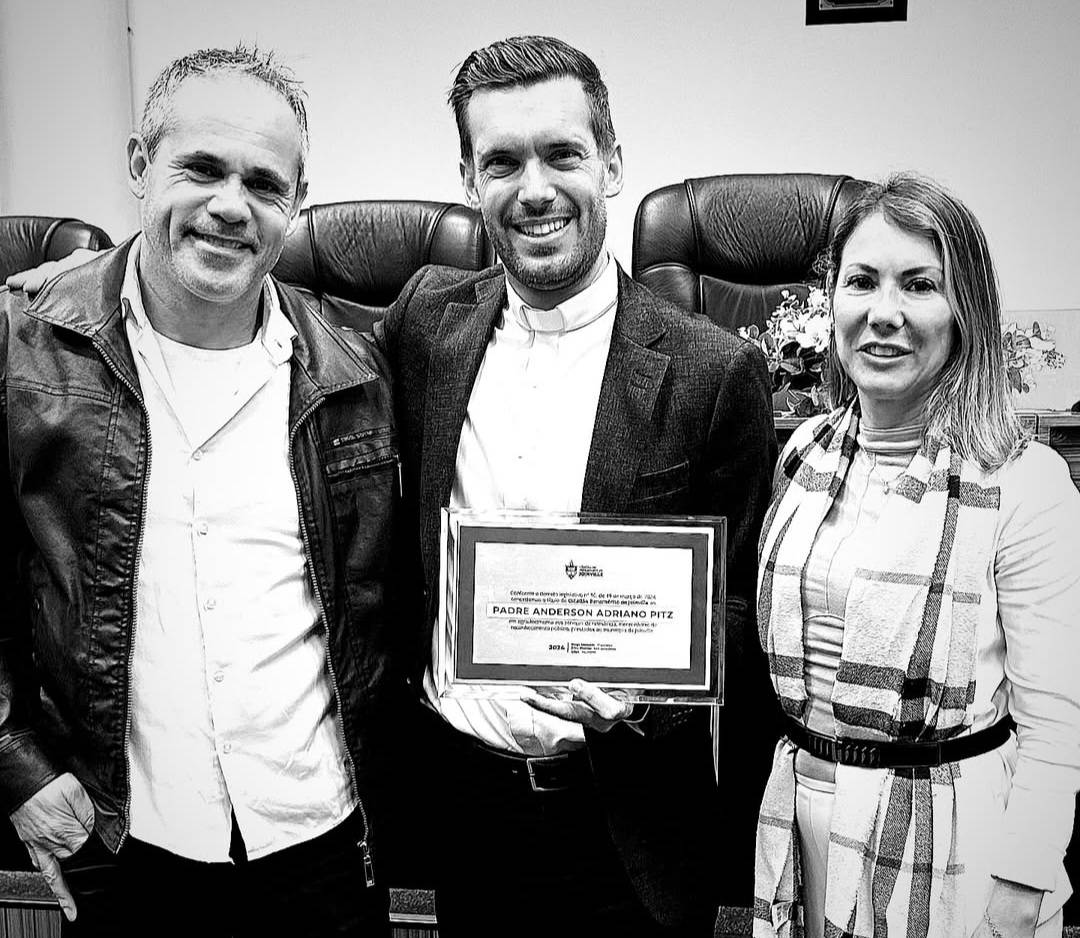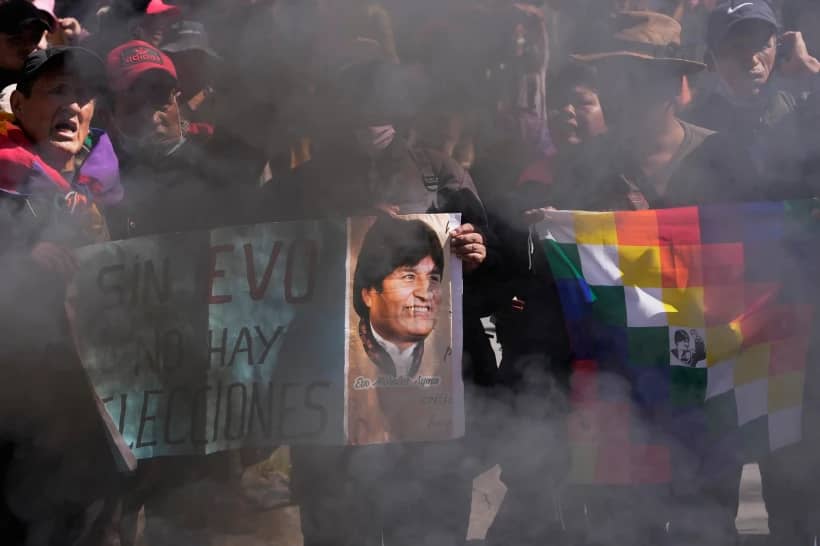FREEPORT, Grand Bahama — While many public schools in Grand Bahama remain closed some five weeks after Hurricane Dorian’s landfall, Mary, Star of the Sea Catholic Academy is back in session with a new daily schedule and newly refurbished spaces.
Principal Joye Ritchie-Greene said her school opened first, followed by other private schools and some public schools in the area. The academy also picked up a few students who transferred from local public schools along with at least two students who transferred from a Catholic school in Abaco that was demolished by the September hurricane.
Although it suffered storm-surge flooding damage, Mary, Star of the Sea Catholic Academy was able to get a jump on post-Dorian renovations with restored electrical power Sept. 23 based on a provisional agreement with the electric company, allowing water-damage repairs to begin immediately, the principal said.
The academy’s high school resumed classes Sept. 17, with earlier starting and ending times and the primary grades returned the following week.
Ritchie-Greene pointed out that hurricane preparedness and lockdown plans are a part of life in the Bahamas, but there also has been a bit of a learning curve in the aftermath of such a powerful storm.
To accommodate the many challenges students and their families are facing right now, the school adjusted its schedule to begin and end a little earlier each day and teachers have said the students are more productive with the changes.
“The shift in our schedule was originally to accommodate children who didn’t have electricity at home, who didn’t have running water, who were still living with family members and needed extra time to do personal things — but we realized that they were more attentive at school,” the principal said.
And while there were no hurricane-related fatalities among the faculty or student body, many have relatives or close friends who experienced these tragedies.
At least three faculty members and about seven or eight student families reported total loss of their homes and personal possessions. Several have taken some time off, and many took short trips off the island to regroup.
“In terms of the social-emotional aspect, we had counselors and psychologists on campus the first two days and we have had counselors speak at our general parent-teacher association meeting last week sharing with parents coping skills for themselves as well as for the children,” Ritchie-Greene told the Florida Catholic, newspaper of the Miami Archdiocese.
In addition, three primary teachers attended special training sessions for trauma and have been incorporating what they learned in their music and art classes. When the students came back, they were also greeted by a stack of pen-pal letters from students at St. Cecilia’s School in Dallas.
“What we have found is that the children have been very resilient, sharing and talking,” Ritchie-Greene said. “We thought it would have taken longer for them to settle in.”
However, she added, soon after the school reopened, “it was as though the storm had not happened: Geography was being taught, history was being taught, physics was being taught — teaching and learning was going on and so I was pleased with that sense of normalcy.”
Ritchie-Greene said the schools in the Bahamas have clear hurricane guidelines and staff teams making sure everything is in place.
“You need to have a plan, you need to have members of the team knowing what is expected of them, but once the storm has happened, it also helps if you have persons above you who also know how to manage and act quickly,” she added.
The aftermath of a hurricane forces you to put your life in perspective, Ritchie-Greene said, adding: “It really causes us to pause and think about what is most important and there is a somberness to people’s moods (now) and people’s emotions are raw. We need to be sensitive to that.”
Put another way, she said: “I recognize that how I respond to what a parent is saying to me is so important because I recognize that we are just out of a very traumatic experience and people aren’t thinking rationally.”
Tracy writes for the Florida Catholic, newspaper of the Archdiocese of Miami.
Crux is dedicated to smart, wired and independent reporting on the Vatican and worldwide Catholic Church. That kind of reporting doesn’t come cheap, and we need your support. You can help Crux by giving a small amount monthly, or with a onetime gift. Please remember, Crux is a for-profit organization, so contributions are not tax-deductible.

















